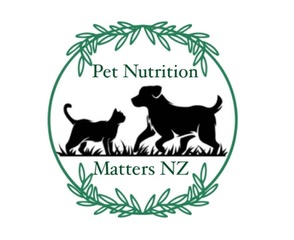Is Soy All It Is Cracked Up To Be?
Soybean cultivation often involves large scale agriculture, which can contribute to deforestation, habitat loss, and soil degradation. However, it is much cheaper to produce than traditional wheat. Operator and land return is currently projected at $243 per acre for corn, $217 per acre for soybeans, and $150 per acre for wheat.
Soy comes from soybeans, a legume. The bean itself is edible, and soy is used in many other products. Soy products include tofu, tempeh, soy milk and soy sauce, vegan meat and cheese substitutes. However, there are plenty of reasons to avoid soy for us and our pets for the following reasons
Glyphosate In GMO Soybeans
The first reason to avoid soy is that most grown soybeans are genetically modified (GMO). GMO foods come with high levels of glyphosate (Roundup), a known carcinogen. Glyphosate destroys the good bacteria in your animals gut, weakening their immune system.
Antinutrients And Leaky Gut
Like other legumes, soy contains proteins called lectins, which have an “antinutrient” effect. Lectins are sticky proteins that bind to carbohydrates and interfere with digestive enzymes. So they block your animals absorption of vitamins and minerals. Antinutrients in soy can cause digestive issues like gas, diarrhoea and bloating.
Thyroid Risks
Some studies show that soy may lower thyroid function and could lead to hypothyroidism in dogs. Soy interferes with the thyroid gland’s ability to make T4 (thyroxine) and T3 (tri-iodothyronine), hormones necessary for normal thyroid function. In dogs, the result is hypothyroidism. For cats this results in hyperthyroidism.
Allergies
This is ironic, because soy is a common ingredient in prescription allergy diets for dogs and cats but there’s growing concern that GMO foods, including soy, may be triggering a steep increase in food allergies. Soy flour can also trigger allergies or sensitivities in some humans too.
Phytoestrogens In Soy
Phytoestrogens are estrogens in plants that are potentially harmful. Commercial pet products contain phytoestrogens in amounts that could have biological effects when ingested long-term. As these will build up in the body over time. Phytoestrogens may also increase dementia risk.
Possible Cancer Risk.
The estrogen-mimicking effects of soy isoflavones may increase the risks of breast cancer amongst others.
Other Problems With Soy Pet Food/ Supplements
Here are some other potential harmful effects of soy for dogs and cats…
- Soy is antigenic (meaning it can stimulate the production of antibodies)
- Soy denatures during high temperature processing causing formation of toxic lysinoalanine and highly carcinogenic nitrosamines
- Soy contains trypsin inhibitors (which have caused stunted growth in test animals)
- Soy is high in phytic acid, which reduces the digestion of key nutrients
- Eating soybean products is linked to seizures in dogs

